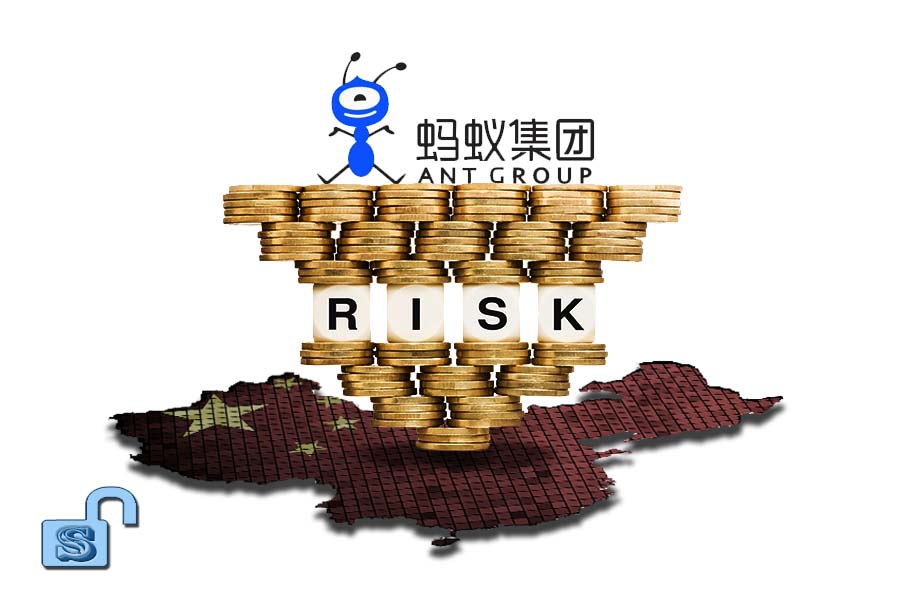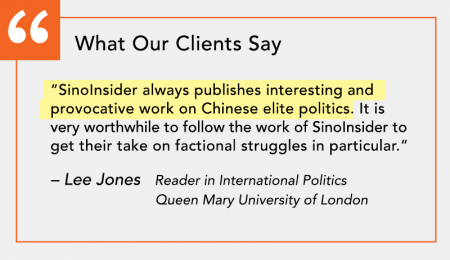◎ Ma’s speech is unlikely the driving reason behind Beijing pulling the plug on Ant.
Ant Group, the financial services company co-founded by Chinese business magnate Jack Ma, suffered a massive setback when Beijing pulled its $34-billion initial public offering (IPO) set to launch in the Hong Kong and Shanghai stock markets on Nov. 3.
On Oct. 24, days prior to the ill-fated IPO’s slated launch, Ma gave a speech at the China Finance 40 Forum during the Bund Financial Summit in Shanghai. In the speech, he said that China’s banking sector was encumbered by red tape and slow to innovate, symptoms of what he called a risk-averse “pawn shop mentality.”
Ma also opined that “good innovations are not afraid of supervision, but they do fear outdated supervision.”
Ma’s speech was prefaced by a keynote speech delivered remotely at the forum by People’s Republic of China (PRC) vice president Wang Qishan. In his remarks, Wang warned that China’s financial sector could not be allowed to devolve along “the crooked path of speculation and gambling, the circuitous side path of financial bubbles, or the pernicious path of Ponzi schemes.”
After news broke that Ant’s IPOs were being withdrawn, China observers were quick to note that Jack Ma was being punished by the Chinese Communist Party for his Shanghai remarks.
Not just personal
On Nov. 2, Ma and top Ant Group executives Eric Jing and Simon Hu met with PRC financial regulators. Following the meeting, Ant released a statement pledging to adhere to regulation and serve the Chinese economy and people, in light of “views regarding the health and stability of the financial sector” that were “exchanged.”
That evening, the People’s Bank of China and China Banking and Insurance Regulatory Commission (CBIRC)—two entities that had sent representatives to speak with Ma—issued new financial rules aimed at controlling large state-owned and private conglomerates.
Also on Nov. 2, CBIRC consumer rights protection bureau head Guo Wuping published a piece in mainland Chinese media titled “The Chaos of Fintech Companies Infringing on Consumer Rights is More Worthy of Attention.” The article sharply criticized fintech companies for various faults and advocated increased government control and oversight over the industry.
At first glance, it appears that Ant was solely punished for Ma’s verbal transgressions on Oct. 24 at the Bund Financial Summit. Observers read Ma’s speech as a challenge to the earlier words of Wang Qishan. A Reuters piece, citing a “senior regulatory source,” maintains that Ma had erroneously believed he “could challenge the financial establishment yet retain the support of the central leadership.”
But Ma’s speech is unlikely the driving reason behind Beijing pulling the plug on Ant’s $34-billion IPO. The Communist Party leadership is more preoccupied with financial and political security. As Reuters’ source notes, “The bigger picture was that one of the government’s main aims this year is to shore up the country’s financial sector and tighten regulatory oversight to prevent systemic risks in a pandemic-hit economy.”
Last-minute pressure
Though Ma is one of China’s wealthiest, he is not a member of the CCP’s inner circle or part of its hereditary “red aristocracy.” As with all issues in Communist China, money takes a backseat to politics. The capitalist class to which Ma belongs is ideologically anathema to the Party, and only tolerated so long as it serves the interests of the leadership.
Odds are slim that a man in Ma’s position would mount a serious political challenge against the Communist Party. Instead, his comments are better understood as the frustrated plea from a prominent businessman for Beijing to loosen regulation, which could call public attention to the issue and perhaps even sway Party bureaucrats to reconsider their actions.
Chinese leader Xi Jinping has made curbing financial crises a priority during his second term in power. According to a Nov. 12 report by the Wall Street Journal, Xi and other senior officials have long wanted to exercise greater control over Jack Ma’s business. His Oct. 24 speech simply provided the catalyst for “Chinese regulators to investigate and all but shut down Ant’s initial public offering,” the Journal reported, citing PRC officials familiar with the situation.
Beijing appears to have put a halt to Ant Group’s IPOs after realizing belatedly that the company would profit immensely from the listings but leave the massive financial risks of its operations for Beijing to clean up. The CCP’s willingness to scrap a record IPO at the last minute over concerns of financial risks shows that in China, those risks are very high indeed.
Politics and business
Ant will almost certainly be able to launch its IPO again, probably in half a year’s time. However, analysts estimate Ant Group’s valuation could drop by over $150 billion (previously estimated at $313 billion after IPO) after government regulations are put in place.
While a delayed IPO for Ant Group allows the CCP to lower its financial and political risks, it does damage to the image the Party has been trying to create surrounding its pandemic recovery and financial market “liberalization.” That the IPO could be halted seemingly without rhyme or reason, and that Ant’s top executives could receive ominous summons from the regime ought to remind investors of the political risks they face when working with Chinese companies—no matter how prominent or successful.
For the CCP and Xi, though, these costs are well worth it. The financial risk of Ant’s value plummeting after a record IPO is removed, while the risks associated with fintech-driven financialization of the Chinese economy is being reduced with new regulations. The curbing of potential financial trouble stemming from a successful Ant IPO also helps Xi Jinping lower his political vulnerability, as his factional rivals in the Party are afforded one less avenue through which they might be able to employ “unrestricted warfare” tactics to undermine Party Central.
The primary rationale behind Beijing’s last-minute decision to pull Ant Group’s IPO is the curbing of massive financial and political risks. Jack Ma did himself no favors with his provocative remarks in Shanghai, and the Communist Party does have incentive in letting the narrative circulate that Ma was punished for intentionally challenging the authorities. Such perceptions send a cautionary tale to other private entrepreneurs who might be thinking of overstepping their boundaries, and projects an image of political strength in uncertain times.
Beijing’s strongarm handling of the Ant IPO episode points to immense financial risks. Businesses, investors, and governments need to see through the CCP’s propaganda portraying China as a financial “safe haven” and prepare contingencies for the outbreak of major financial and economic crises.














